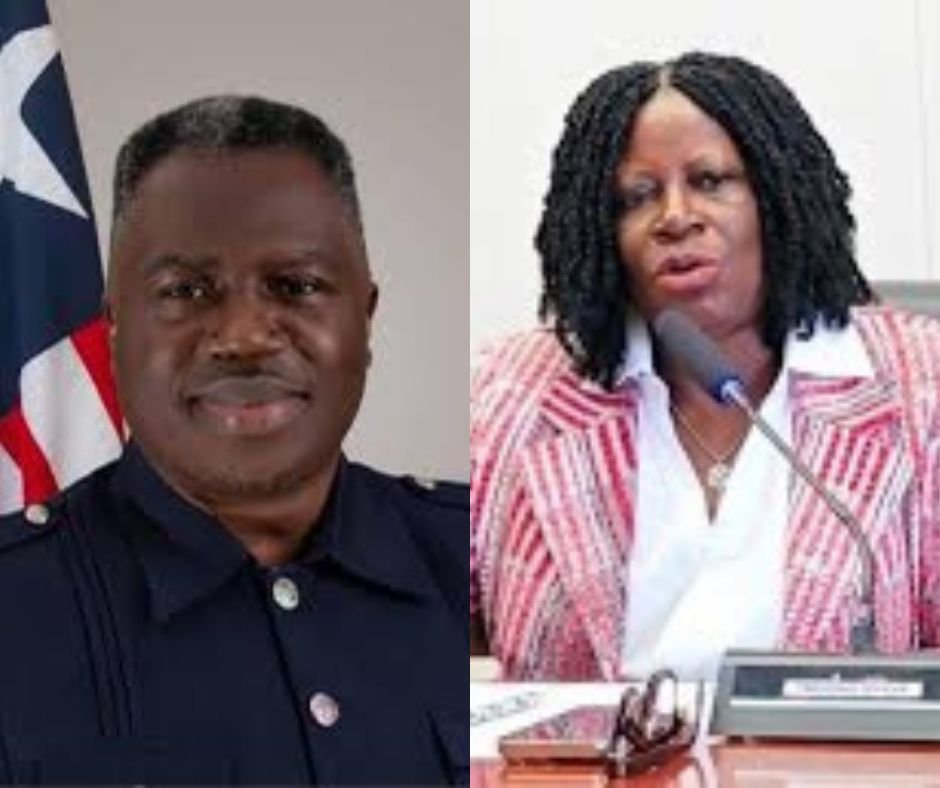Capitol Hill, Monrovia – At the Liberian Senate, a power struggle appears to be developing between Vice President Jeremiah Kpan Koung and Senate Pro Tempore Nyonblee Karnga-Lawrence. Vice President Koung, representing Nimba County, and Pro Tempore Karnga-Lawrence, representing Grand Bassa County, both played crucial roles in the Unity Party’s success in the 2023 presidential runoff election.
Initially, Senator Karnga-Lawrence was a strong contender for then-candidate Joseph Nyuma Boakai’s vice-presidential pick. However, internal conflicts within the Liberty Party led Boakai to select Koung instead, which caused some discontent in Karnga-Lawrence’s camp. To resolve this, a compromise was reached: Karnga-Lawrence was promised the position of Pro Tempore if the Unity Party won. Following their victory, Koung became Vice President, and Karnga-Lawrence was elected as the President Pro Tempore of the Senate.
Six months into their terms, tensions have emerged. A letter from Vice President Koung’s Chief-of-Staff, Prince Gbieu, to the Senate Secretary, cited constitutional and procedural rules, requesting that all matters for the President’s desk and the Senate’s daily agenda be approved by Koung before sessions. This reminder underscored Koung’s role as the presiding officer of the Senate, as stated in Chapter VI, Article 51 of the 1986 Liberian Constitution and Rule 13 of the Senate Standing Rules.
This move raises questions about the Vice President’s need for such a reminder, how he managed his duties previously without these materials, and who the Senate Secretary had been reporting to in the interim. Some senior senators, supporters of Pro Tempore Karnga-Lawrence, view this as an unprecedented power play. They point out that past vice presidents, including Joseph Boakai and Jewel Howard Taylor, did not exercise such assertiveness in the Senate.
A recent closed-door meeting aimed to mediate the situation, with some senators urging cooperation between Koung and Karnga-Lawrence. However, Koung insisted on his right to approve the plenary agenda. Opinions among senators are divided: while some, like Senator Dillon, argue that Koung’s role is largely ceremonial, others, including Prince Moye and Alex Tyler, support a more active role for the Vice President.
Both officials have remained silent on the issue, and neither Koung’s Chief-of-Staff nor Karnga-Lawrence’s office has responded to inquiries. An anonymous senator downplayed the tension, describing it as typical legislative dynamics, especially early in a new administration.
The tension has not gone unnoticed by the Senate press and public. Observers note that Koung’s frequent presence at sessions initially limited Karnga-Lawrence’s time presiding, although his appearances have become less frequent due to other state responsibilities. Some staff and reporters have commented on the awkwardness of Karnga-Lawrence having to vacate her seat when Koung arrives late.
Despite no public fallout between the two leaders, it is clear that resolving these differences is crucial for the effective leadership of the Senate and the Unity Party-led government.

